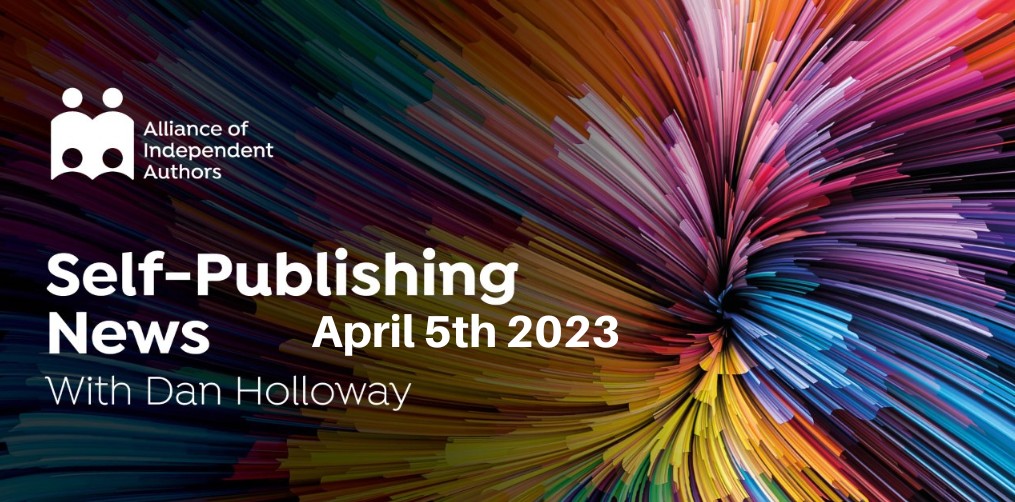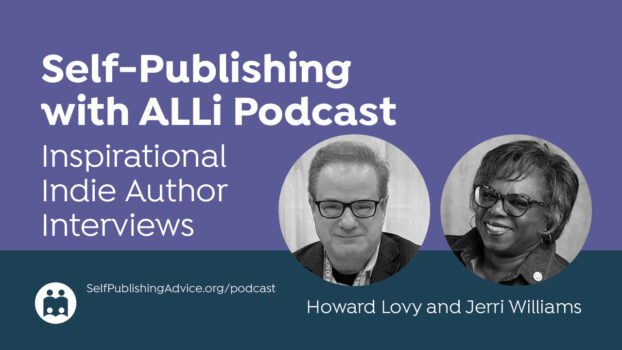In this week's Self-Publishing News Special, ALLi News Editor Dan Holloway takes a look at London Book Fair's creation of a Sustainability Lounge.

ALLi's News Editor Dan Holloway
In this month's podcast, Howard and I discuss the US Copyright Office's new guidance on the use of AI-generated materials in creative works, and ALLi's indie author income survey.
Sustainability Takes Centre Stage at London Book Fair
After a long time away, I very much look forward to seeing as many of you as I can at London Book Fair later this month. I will be nosing around on the 18th of April and loitering with or without intent around the AuthorHQ from time to time. I would love to take quotations from you on things you have found interesting, helpful or, heaven forbid, unhelpful at the Fair.
One thing of particular note about the programming at London Book Fair is that AI isn’t what caught my eye. Instead, what drew my attention is the creation of a new Sustainability Lounge. The need for publishing to do something about its carbon footprint is hardly news, of course. But it was only at Futurebook in 2021 that I really noticed it getting a high profile. One of the things that set apart the coverage there was a set of high quality figures. Among them the unsurprising but eye-popping stat that 42% of industry emissions come from returns.
As the Publishing Perspectives article on the stage points out, there have been events and panels and initiatives for years. But this is the first time there has been a dedicated stage that has run throughout the week. I couldn’t help but reflect on reading that comment that this means on the scale of urgent high profile stories, publishing’s role in the climate crisis is running around 6 months behind BookTok.
Interestingly, I see no mention of two things. One is us. Indie authors. By overwhelmingly using print on demand, we have adopted by far the most sustainable form of print publication. And we have the agility and innovative freedom to lead the way. Elsevier’s Rachel Martin, who will be running the Sustainability Lounge, says, “We Need Every Inspirational, Motivational Idea.” Our continued absence makes me wonder how seriously the powers that be take those words.
The other absence I note is NFTs. The data hungry, energy munching crypto-peddling blockchain files are somewhat less ubiquitous these days. Maybe the world can only cope with one tech hype at a time.
Senior Tech Experts Call for a Pause on AI Development
Which brings me to…
I am aware that I report on AI a lot. So I try to temper the amount of coverage I give it. But no matter how much I try, it will not stop pestering my inbox. It won’t have escaped your notice that senior figures in the tech world have woken up and realised that they are terrified of the existential threat posed by AI. Elon Musk and others have called for a temporary pause on updates to Chat GPT while they figure out what to do.
Senior figures in cutting edge technology have for a while been warning us of the dangers of, er, cutting edge technology. And insisting that the only way to avoid existential peril is to put in place a body of experts consisting of, let me get this right, the senior figures who created the cutting edge technology creating the existential threat.
What makes this really interesting is the response from actual experts in AI ethics. They have written their own open letter in which they criticise the focus of Musk et al. They point out that while existential threats may be headline grabbing, the threat to people’s jobs will cause for more, and more immediate, sleepless nights.
Italy bans ChatGPT, citing data processing concerns
Meanwhile, Italy has banned ChatGPT, causing Open AI to geoblock the platform (a way of enforcing territorial borders in a digital world). Italy has used GDPR to facilitate the ban, citing concerns over the processing of personal data. This opens the door for other EU member countries to follow suit. It’s a really interesting approach. And, I would suggest, probably more appropriate than going after copyright issues. Data protection law might not be as nimble as a whippet, but it makes copyright law look like a lumbering liner. This is in part because much current data protection law grew up in the digital age.
And talking of intellectual property and AI, we finally have a whole novel-length fiction book authored by AI. According to a Reddit poster, even the title of “Echoes of Atlantis” is the work of ChatGPT 4. It seems an apt title for a book that marks the start of the floodgates opening.
Bookwire and Overdrive: Entry and Exit
Meanwhile, news from two of the most established platforms in digital publishing. German platform Bookwire has expanded into the US. The company will offer a one-stop shop to bring digital content to market. Overdrive, meanwhile, will be retiring its Overdrive app from May. The to-library distributor will instead be focusing wholly on its more up-to-date Libby app. Overdrive will urge Overdrive app users to migrate swiftly, and will phase out support.
Self-publishing News: Sustainability Centre Stage at London Book Fair Share on X



